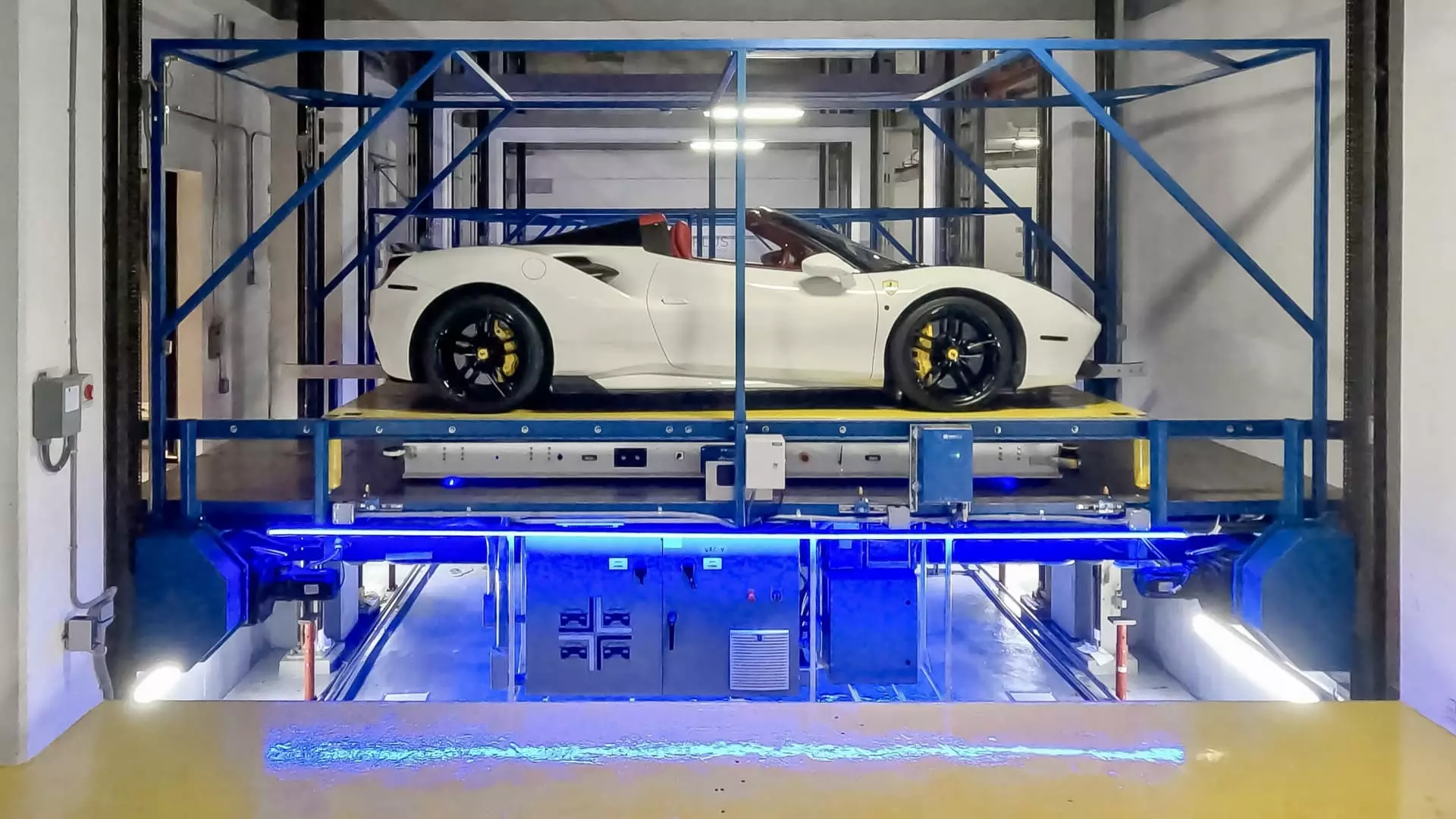In the ever-evolving landscape of urban living, the integration of cutting-edge technology into daily life has become a hallmark of luxury real estate. A prime example of this shift can be observed in Miami’s Brickell House, a 46-story condominium outfitted with an advanced automated parking system. This novel approach to parking is characterized by unparalleled efficiency and convenience, employing robots to ferry residents’ vehicles seamlessly into a multi-level garage. As technology progresses, automated parking systems are not just a passing trend; they are becoming essential features that define luxury living in metropolitan areas.
Automated parking systems, such as the one housed within Brickell House, operate via a series of sophisticated mechanisms that eliminate the need for human intervention. The garage spans 13 levels and utilizes five car lifts, a network of lasers, and numerous bar codes embedded in the garage floor to facilitate the movement of vehicles. Residents can simply pull into one of the building’s drive-up bays, relinquishing their vehicles to robots that expertly maneuver them into designated spots. This automated process not only saves time but also maximizes space efficiency, allowing for tighter parking configurations that traditional systems cannot accommodate.
The technology hinges on the utilization of Automated Guidance Vehicles (AGVs), which are specially designed robots capable of autonomously retrieving and parking cars. These AGVs, which are small in size yet powerful, are equipped with vision systems that help them navigate with precision. The remarkable speed and accuracy of these machines ensure that a vehicle can be retrieved from as high up as the ninth level of the garage in just a few minutes, showcasing the potential of automated systems to enhance user experience in high-density environments.
As we delve deeper into the financial implications of automated parking systems, we find that the global smart parking market was evaluated at approximately $6.5 billion in 2021, with expectations to reach a staggering $30.16 billion by 2030. This growing sector is particularly influential in North America, where urban luxury real estate is incorporating these smart solutions to attract affluent buyers. In some cases, the cost of a coveted parking spot in high-end buildings can be as much as $300,000, signifying the value that buyers place on innovative living solutions.
Luxury developments like Brickell House are at the forefront of capitalizing on this trend. With a real estate price tag of $15 million for a five-bedroom penthouse—complete with five parking spots in the futuristic garage—developers are increasingly motivated to invest significantly in automated solutions. Prices for such installations typically range from $20,000 to $80,000 per spot, presenting developers with a pathway to optimize property values by enhancing parking efficiency.
Despite the advantages, the journey toward full automated parking implementation has not been without hurdles. The previous parking system at Brickell House was plagued with issues, leading to frustrations and legal disputes that cast a shadow over its residents. Complaints about vehicles being trapped and the system’s failure pushed the condominium association to take legal action, resulting in a substantial $40 million jury award. This experience highlighted the critical need for reliability in automated systems, a lesson that the industry is now actively addressing.
Moreover, failures in automated systems have not been isolated to Brickell House. The legal woes of billionaire Palmer Luckey, who found himself trapped in his luxury garage’s faulty elevator, underscore the potential pitfalls of embracing new technology without rigorous testing and oversight. As the industry develops, ongoing attention to risk management and reliability is paramount to avoid repeating past mistakes.
The Future of Parking: Innovation and Reliability
Looking ahead, the future of parking systems will likely continue to evolve, driven by the lessons learned from initial implementations. Companies like ParkPlus are committed to enhancing system reliability through rigorous testing and improved technology. For instance, advancements in AGVs are crucial; they must not only facilitate faster vehicle retrieval but also guarantee safety and efficiency.
As urban density increases, the demand for innovative solutions like automated parking systems is set to escalate. The capacity to free up valuable real estate by providing smarter parking options means that developments with such features will likely remain in high demand amid an increasingly competitive market.
The advent of automated parking systems represents a significant shift in how we approach vehicle storage in urban environments. Projects like the one at Brickell House herald a new era of luxury living, where convenience, efficiency, and technology converge. However, as recent history has shown, the journey is fraught with challenges that necessitate a proactive approach toward innovation, reliability, and user experience. As the market for smart parking expands, it will be essential for developers and technology providers to collaborate closely to build systems that not only meet the needs of today but also adapt to the demands of tomorrow.

Leave a Reply